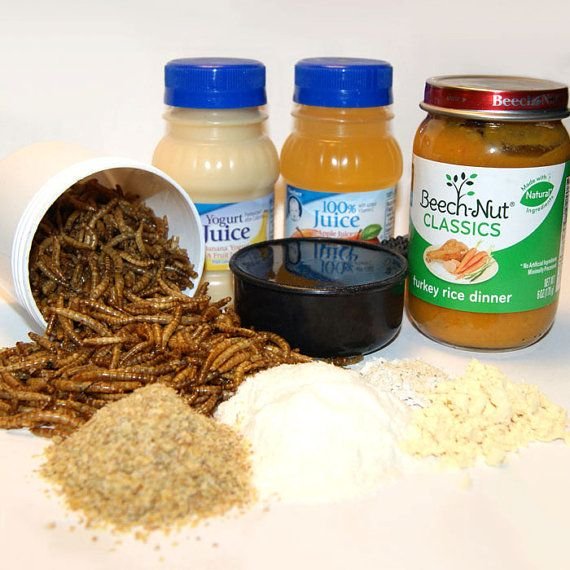Ohpw Sugar Glider Diet
If you’re considering getting a sugar glider as a pet, one of the most important factors to consider is its diet. Providing your sugar glider with a proper, balanced diet is essential for its health and well-being. In this article, we will delve into the “ohpw sugar glider diet” and discuss the key components, nutritional requirements, and recommended feeding plan for your furry friend. So, let’s get started!
The OHPW Sugar Glider Diet
The OHPW (Original HPW) sugar glider diet is a widely popular and recommended diet plan for sugar gliders. It stands for “Original High Protein Wombaroo” and was formulated by Dr. Cathy Johnson-Delaney, a veterinarian specializing in sugar gliders.
What is OHPW?
The OHPW diet is a combination of several ingredients that provide a healthy and nutritious meal for sugar gliders. It consists of a base mix, fruit blend, and other supplements to ensure adequate protein, vitamins, minerals, and essential fatty acids.
The base mix includes ingredients such as honey, boiled eggs, and Wombaroo High Protein Supplement, which is specially formulated for sugar gliders. The fruit blend primarily consists of a variety of fresh fruits and vegetables. Additionally, calcium and multivitamin supplements are recommended to meet the glider’s specific nutritional needs.

Why is OHPW Recommended?
The OHPW diet is highly recommended because it closely resembles the natural diet of sugar gliders in the wild. Sugar gliders are omnivores and eat a variety of fruits, nectar, pollen, and insects in their natural habitat. The OHPW diet replicates these food sources, providing the necessary nutrients for their overall health and development.
It is important to note that the OHPW diet should be supplemented with appropriate fresh fruits and vegetables to ensure a balanced diet. Sugar gliders require a diet that is high in protein, low in fat, and rich in vitamins and minerals.
Nutritional Requirements for Sugar Gliders
Protein
Protein is a crucial component of the sugar glider’s diet. Sugar gliders require a diet that is high in protein to support their growth, muscle development, and overall health. The OHPW diet provides the necessary protein intake through its base mix and other supplements.
Fruits and Vegetables
Fresh fruits and vegetables are an essential part of the sugar glider’s diet. They provide the necessary vitamins, minerals, and fiber needed for their overall well-being. Some suitable fruits and vegetables for sugar gliders include apples, grapes, melons, carrots, and leafy greens.
It is important to introduce a variety of fruits and vegetables to ensure a diverse and balanced diet for your sugar glider. Avoid feeding them citrus fruits, avocados, and onions, as these can be harmful to their health.
Calcium
Calcium is crucial for the development and maintenance of healthy bones and teeth in sugar gliders. A calcium supplement should be included in their diet to ensure adequate intake. Calcium can be provided in the form of a powder and sprinkled over their food.
Fat
While sugar gliders need a moderate amount of fat in their diet for energy, it is important to ensure that the fat content is kept at an appropriate level. High-fat diets can lead to obesity and other health issues. The OHPW diet provides a balanced fat content to meet their requirements.
Feeding Recommendations for Sugar Gliders
Frequency and Portion Size
Sugar gliders are nocturnal animals, so it is recommended to feed them in the evening or at night. The general rule of thumb is to provide them with small meal portions, as their metabolism is designed for small, frequent feedings.
It is recommended to feed sugar gliders twice a day, supplying fresh food every evening and removing any uneaten food in the morning. This ensures that their diet remains fresh and free from bacteria.
Water
Sugar gliders should have access to fresh, clean water at all times. Provide them with a water bottle or a shallow dish filled with fresh water. Ensure that the water source is secure and easily accessible for them.
Treats and Snacks
While it’s tempting to spoil your sugar glider with treats and snacks, it is crucial to be mindful of their nutritional needs. Limit the amount of sugary or fatty treats and instead opt for natural treats, such as mealworms or small pieces of fresh fruit.
Frequently Asked Questions
1: Can I feed my sugar glider a diet solely consisting of fruits and vegetables?
No, it is not recommended to feed your sugar glider a diet solely consisting of fruits and vegetables. Sugar gliders are omnivores and require a diet that includes protein, vitamins, and minerals. The OHPW diet provides a balanced and nutritionally complete meal for their overall health.
2: How often should I provide calcium supplements to my sugar glider?
Calcium supplements should be provided to sugar gliders two to three times a week. It is important to ensure that the calcium supplement is specifically formulated for sugar gliders and follows the recommended dosage instructions.
3: Can sugar gliders eat human food?
While it is tempting to share your food with your sugar glider, it is essential to stick to an appropriate diet specifically designed for them. Human food can be high in salt, sugar, and unhealthy fats, which can be detrimental to their health. Stick to their recommended diet plan for their well-being.
Final Thoughts
Providing your sugar glider with a proper diet is essential for its overall health and well-being. The OHPW sugar glider diet offers a nutritionally complete meal plan that closely resembles their natural diet in the wild. By following the recommended feeding guidelines and ensuring a balanced and diverse diet, you can ensure that your sugar glider lives a happy and healthy life as your beloved pet. Remember to always consult with a veterinarian specializing in sugar gliders if you have any concerns or questions about their diet or nutritional needs.







